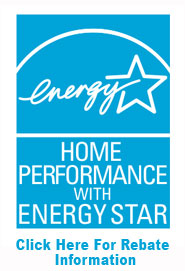Aarden Air - Energy Rebates
The American Recovery and Reinvestment Act of 2009 signed on February 17, 2009, by President Obama has made significant changes to homeowner tax credits for specified energy-efficient home improvements including qualifying, residential water heaters. The tax credit for qualifying energy improvements such as the installation of Rinnai, Noritz, or Navien tankless water heaters or qualifying Coleman and Lennox furnaces or air conditioners has been modified from $300 to 30% of the full purchase and installation price up to a maximum credit of $1500. In addition these tax credits for 2009 have been extended through Dec. 31, 2010.
For more information on the bill, check out the U.S. Department of Energy website.Puget Sound Energy
Saving energy is good for you and the environment. Let PSE help you get started with money-saving offers on energy-efficient products and services. Puget Sound Energy offers rebates of up to $1500 for installation of qualified ductless heat pumps, dual-fuel heat pumps, and energy improvements such as duct insulation.
For more information on the Mini-split heatpump program click here.Ductless Heatpump Pilot Program
Electric baseboard and wall heaters can be an inefficient and uncomfortable heat source for homes. Many local utilities are helping their customers upgrade to a more energy efficient alternative, a Ductless Heating and Cooling System. Some utilities are even offering cash incentives as high as $1500 when their customers install Ductless Heating and Cooling systems.
For more information on the Mini-split heatpump program click here.What is a tax credit?
A Tankless Water Heater Tax Credit is not received when you buy the product, like an instant rebate. A Tax Credit on Water Heaters is claimed on your federal income tax form at the end of the year. The credit then increases the tax refund you receive or decreases the amount paid in.
Tax credits vs. tax deductions.
In general, a tax credit is more valuable than a similar tax deduction. A tax credit reduces the tax you pay, dollar-for-dollar. Tax deductions, such as those for home mortgages and charitable giving, for example, lower your taxable income. If you are in the 30 percent tax bracket, your income tax is reduced by 30 percent of the value of a tax deduction. But a tax credit reduces your federal income tax by 100 percent of the amount of the credit.
For more information on Federal Tax Credits for Energy Efficiency, click here.






